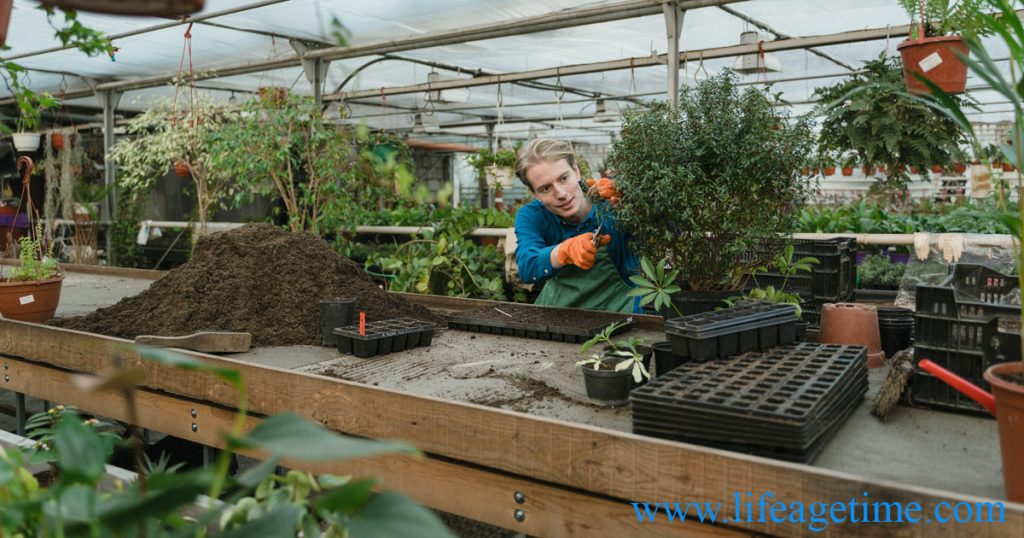Do you dream of a garden that flourishes with lush greenery, vibrant blooms and bountiful harvests? Look no further than electroculture gardens! This innovative gardening technique harnesses the power of electricity to unleash magic and growth in your backyard. In this article, we’ll explore the science behind electroculture gardening, its numerous benefits, and how you can apply these techniques to transform your garden into a thriving oasis.

Electro culture is the science of gardening
Electroculture gardening, also known as electric garden, focuses on the interaction between plants and electricity. Through various electrical stimulations, this technique aims to increase plant growth, increase crop yield and improve overall plant health. Scientists have discovered that plants respond to electrical currents, which can produce a variety of beneficial effects.
Electrostatic Charge: The energy of positive and negative ions
A key aspect of electroculture gardening is the manipulation of electrostatic charges in the garden. Positive and negative ions present in the atmosphere and surrounding environment can affect plant growth and development. By consciously creating an environment with specific ion concentrations, gardeners can optimize plant growth.
Electrodes in the Garden: Enhancing Nutrient Uptake
Electrodes play an important role in electroculture gardening by stimulating plant roots to absorb nutrients more effectively. These electrodes can be inserted into the soil or placed strategically around the garden. The application of electric current promotes the movement of ions in the soil, enabling plants to take up nutrients more efficiently.
Enhanced Crop Yield: Effects of Electroculture on Plant Productivity
Multiple studies have demonstrated that electroculture gardening can significantly increase crop yields. By providing plants with an optimal electrical environment, their metabolic processes are improved, resulting in improved photosynthesis, nutrient absorption and overall productivity. Factors such as plant type, intensity of electrical stimulation and duration of exposure play a role in determining the degree of yield increase.
Disease and pest control through electro culture gardening
The electrostatic charge generated in the garden acts as a natural deterrent against pests. Insects are repelled by electrostatic fields and tend to avoid charged plants. In addition, electroculture has shown potential in controlling garden fungal diseases, reducing the need for harmful pesticides.
Energy efficiency and sustainability of electroculture gardening
A significant advantage of electroculture gardening is its energy efficiency and sustainability. By incorporating renewable energy sources, such as solar or wind power, to generate electricity, gardeners can reduce their carbon footprint. Additionally, electroculture techniques require less water than traditional gardening methods, making it an environmentally friendly choice.
Practical implementation of electroculture technology
Setting up an electroculture garden doesn’t have to be complicated. By following a few simple steps, you can embrace these innovative techniques and reap the benefits. Start by selecting the appropriate electrodes for your garden and understanding the electrical needs of different plant species. Consider factors such as soil conductivity, electrode placement, and intensity of electrical stimulation. By incorporating these best practices, you can create an optimal electrical environment for your plant.
Electro-Horticultural Innovations: The Future of Gardening
As the field of electroculture gardening evolves, researchers are exploring new innovations and applications. Advances in technology hold immense potential for urban agriculture, vertical gardening, and even large-scale commercial agriculture. The integration of Internet of Things (IoT) and Artificial Intelligence (AI) into electroculture systems presents exciting possibilities for the future of gardening.

Conclusion
Electroculture gardening offers a breakthrough approach to gardening that could revolutionize the way we grow plants. By harnessing the power of electricity, you can unlock the full potential of your backyard garden. From increased crop yields and disease control to energy efficiency and sustainability, the benefits are numerous. Embrace electroculture gardening today and watch the magic unfold in your own backyard!
FAQs
Are electroculture gardening techniques safe for plants?
Absolutely! Electroculture techniques are safe and promote plant growth through natural mechanisms, without the use of harmful chemicals.
Can electroculture gardening be implemented in small urban gardens?
Yes, electroculture techniques can be tailored to suit small urban gardens, making it an excellent choice for urban dwellers.
Does electro culture gardening require specialized equipment?
While some equipment may be required, such as electrodes and appropriate electrical connections, it is relatively simple and affordable to set up an electroculture garden.
What types of plants benefit the most from electro culture gardening?
Electroculture gardening techniques can benefit a wide range of plants, including vegetables, flowers, fruits, and even ornamental plants.
Is it necessary to have a background in electrical engineering to practice electro culture garden?
No, a background in electrical engineering is not required for gardening. Basic knowledge of electricity and a willingness to learn is sufficient to get started with electro culture gardening.




